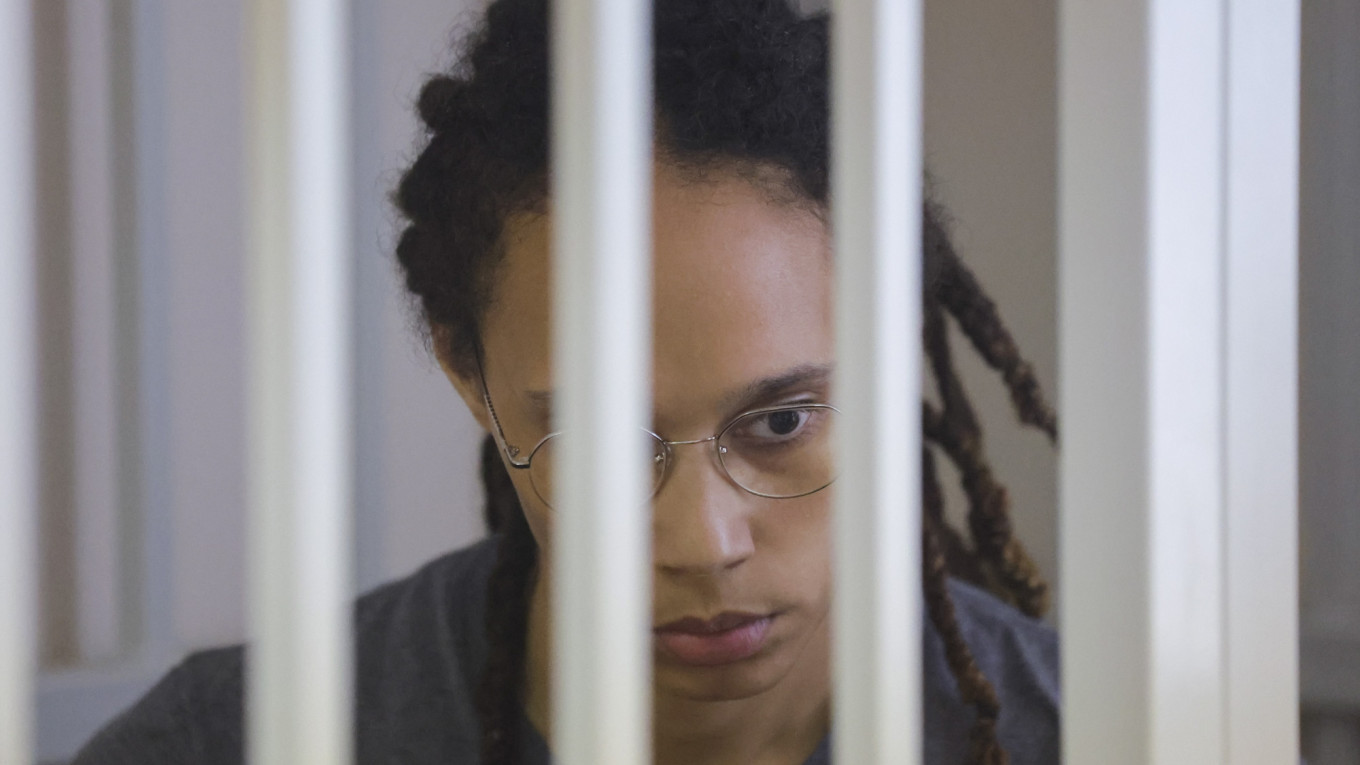The news that American basketball player Brittney Griner had arrived in the IK-2 penal colony in Mordovia, also known as the Russian "land of prisons," left locals rather unmoved.
The double Olympic gold medalist was handed nine years in prison in August for drug possession and trafficking over possessing vape cartridges with a small quantity of cannabis oil.
Griner maintains she was using it to relieve pain from injuries with her doctor's permission, while her supporters say she is a geopolitical hostage.
"We usually get detainees deemed 'particularly dangerous' here," said ex-convict turned taxi driver Vitaly Doyne, 48.
Doyne, who spent six years in a penal colony in Mordovia, said he was "surprised" that a famous athlete had been sent in "such a dump."
There are around two dozen prisons in Mordovia, a land of snowy forests and swamps around 400 kilometers (250 miles) southeast of Moscow.
Vitaly said all the prisons of the regions are — unofficially — classified as "red," which means they are managed by the guards themselves and detainees acting as agents.
The village of Yavas in Mordovia was founded in 1921, as the Soviet Gulag archipelago — a metaphor for the vast network of camps — was just emerging.
Its economy still very much revolves around the prisons: most residents are either current or former penitentiary employees.
'She deserved it'
At Saturday's local market, most residents refused to talk to the press or said they had heard nothing about Griner's case.
However one woman stopped, intent on speaking to AFP.
"The law is the same for everyone, for big-wigs and for ordinary people," said Svytlana, a 50-year-old with dyed red hair.
She refused to give her family name, but continued:
"If they sent her to prison, it means she deserved it. If she behaves properly, she'll get out early and with a clean conscience."
Fears remain over what treatment awaits Griner in the Mordovian penal colony.
By local standards, Griner's prison is "normal," said Olga Romanova, head of Rus Sidyashchaya (Russia Behind Bars) organization that defends the rights of inmates in Russia.
Some detainees have reported beatings in IK-2 and labor conditions are "not far from slavery," she said.
"But there are much worst prisons" in Russia, added Romanova, currently exiled in Germany.
She explained that, contrary to men's prisons, there are "no systems of castes or hierarchies" among detainees in women's colonies.
On the flip side, imprisoned women are often left to fend for themselves.
Black, lesbian and American
But Brittney Griner is a special case: there is talk of a possible prisoner swap between the U.S. and Russia, which could see her return home.
As long as negotiations are ongoing, the administration "will take care of her," Romanova says.
"But if negotiations stop, then she will be in danger."
Griner being "lesbian, American, and black," are three more reasons for concern, according to Romanova.
This makes her a prime target for harassment in Russian prison, where extremely violent homophobia and racism abound, and where the U.S. is seen as "a mortal enemy" said Romanova.
"It's a good thing she doesn't speak Russian, she won't be able to understand what people say to her," she added.
"I think that could solve some of her problems."
A Message from The Moscow Times:
Dear readers,
We are facing unprecedented challenges. Russia's Prosecutor General's Office has designated The Moscow Times as an "undesirable" organization, criminalizing our work and putting our staff at risk of prosecution. This follows our earlier unjust labeling as a "foreign agent."
These actions are direct attempts to silence independent journalism in Russia. The authorities claim our work "discredits the decisions of the Russian leadership." We see things differently: we strive to provide accurate, unbiased reporting on Russia.
We, the journalists of The Moscow Times, refuse to be silenced. But to continue our work, we need your help.
Your support, no matter how small, makes a world of difference. If you can, please support us monthly starting from just $2. It's quick to set up, and every contribution makes a significant impact.
By supporting The Moscow Times, you're defending open, independent journalism in the face of repression. Thank you for standing with us.
Remind me later.






